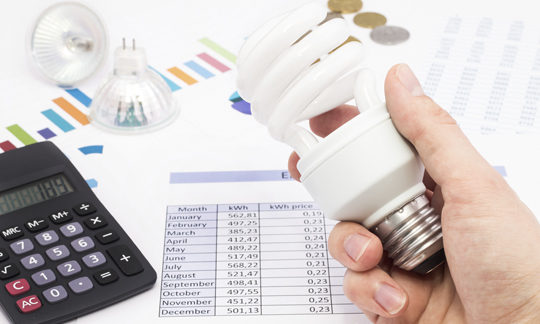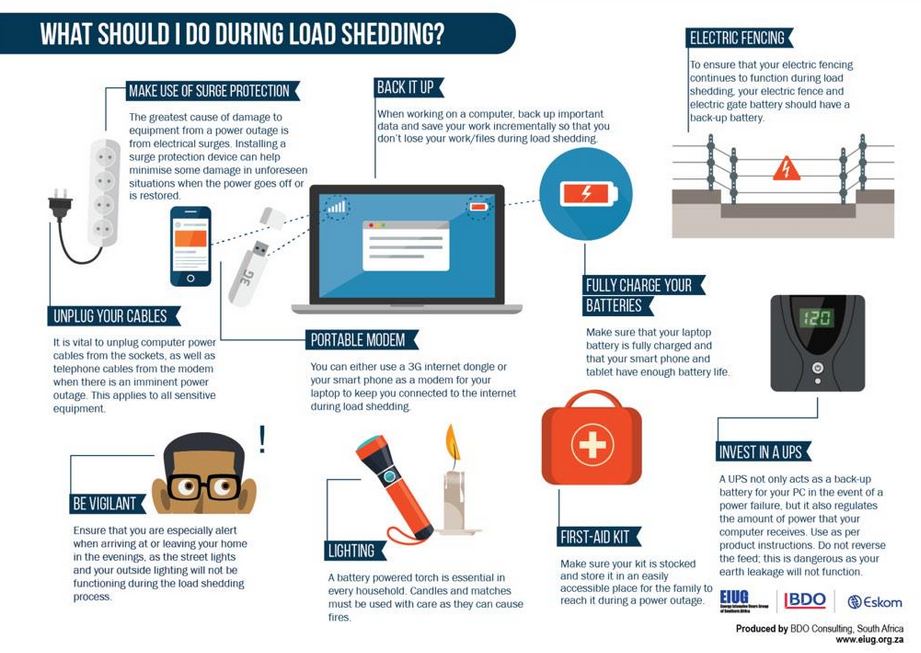Useful Tips to Deal with Load Shedding

While it can be a very annoying inconvenience, it should also be a wake-up call to us to get serious about the way we use electricity to avoid any strain on our already limited resources.
Reducing your household's electricity demand not only saves you money, it also means the load on the national power grid is reduced, which helps stabilise the power supply.
How to stay up-to-date on possible load shedding schedules:
City of Cape Town Municipal Customers
Here are some useful tips to minimise inconvenience in the event of load shedding:
Think about communication:
- Ensure your cellphone is always fully charged when power is available.
Think about transport:
- Ensure your vehicle (car, bakkie, motorcycle, etc) always has fuel in the tank because petrol stations cannot pump fuel during power outages.
Think about cash:
- Ensure you have enough cash because ATMs cannot operate without electricity.
Think about access, security and safety:
- Release automatic electric garage door mechanisms so you can gain access to your property during a power outage.
- Release electric security gates and switch to manual operation to avoid being either locked out of or in your home.
- Keep temporary lighting readily available, e.g. battery-powered torches and candles. Make sure you put these items in places where they will be easy to find in the dark.
- Keep a torch (with fresh batteries) by your bedside at all times.
- Get a small LP gas lamp, as it gives good quality lighting for a large area.
Think about keeping things cool and heating them up:
- Boil water and keep it in thermos flasks for hot drinks for when the power is scheduled to be switched off.
- Use an insulating cover on teapots and other pots and pans to keep drinks hot, and meals warm.
- Prepare meals beforehand in case of power cuts.
- Obtain a small, stand-by bottled LP gas heating ring for essential cooking and to boil water for hot beverages.
- Keep adequate stocks of essential foodstuffs.
- Keep refrigerator and freezer doors closed. A power outage lasting four hours should not cause food spoilage, and a freezer should keep frozen food safe for at least a day. It is a good idea to have alternative snacks available that do not need refrigeration.
- Most medication requiring refrigeration can be kept in a closed fridge for several hours without spoiling (check with your doctor or pharmacist to be sure).
- Fill plastic containers with water (still leaving some space inside each container for expansion during freezing) in a deep freeze or the freezer compartment of your fridge. This frozen bottled water will help keep food cold during a power outage.
What should I do during load shedding?
Make the call: Load shedding explained



